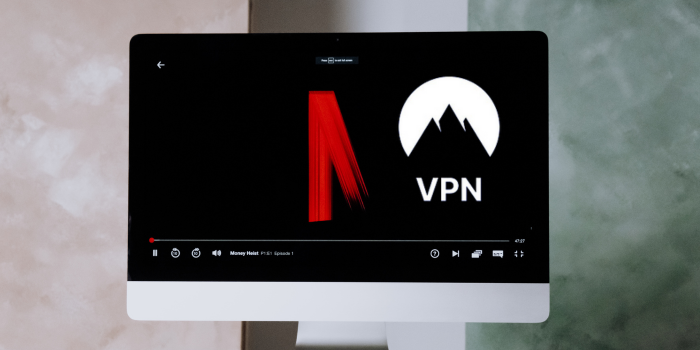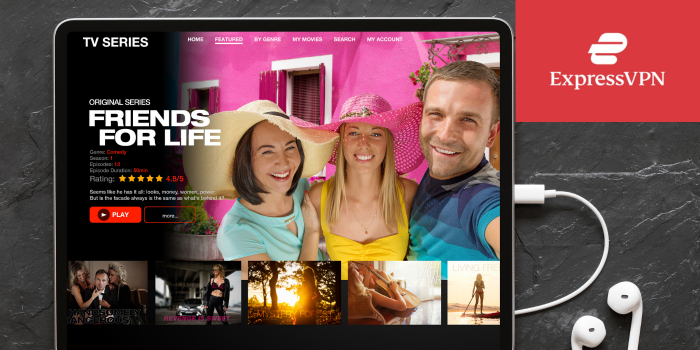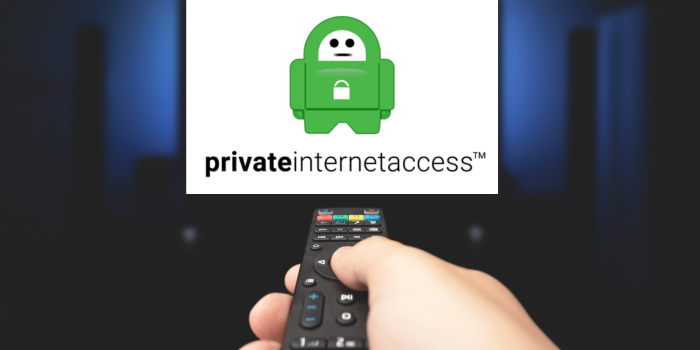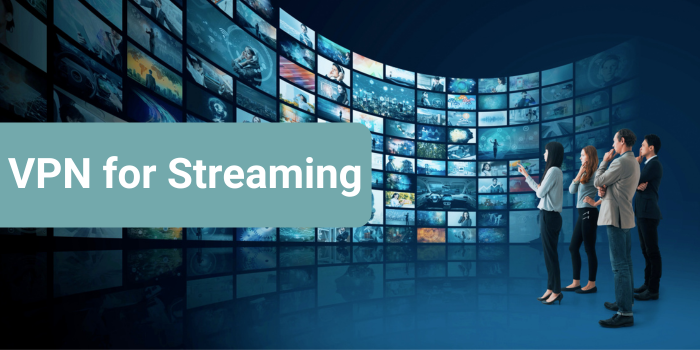The digital age has ushered in an era of unprecedented access to entertainment. Streaming platforms have transformed how we consume movies, TV shows, and music, offering a vast library of content at our fingertips. However, the enjoyment of this digital buffet is often marred by geographical restrictions and internet throttling. This is where a VPN steps in as a game-changer.
The technology that establishes a safe, encrypted connection between your device and the internet is called a virtual private network, or VPN. By routing your internet traffic through a remote server, a VPN masks your original IP address, making it appear as if you are browsing from a different location. This simple yet powerful functionality has profound implications for streaming.
In this comprehensive guide, we will delve into the intricacies of VPNs and their application in the streaming world. We will explore how VPNs work, their multifaceted benefits, and essential factors to consider when selecting the ideal VPN for your streaming needs.
How VPN Work with Streaming?
At its core, a VPN functions as a digital tunnel that safeguards your online activities. When you connect to a VPN server, your internet traffic is rerouted through this server, encrypting your data and concealing your real IP address. This process offers several advantages for streaming enthusiasts:
- Geo-spoofing: By connecting to a VPN server in a different country, you effectively change your virtual location. This circumvents geo-restrictions imposed by streaming platforms, granting you access to a wider range of content. For instance, if you’re traveling or residing outside your home country, a VPN can help you access your local streaming services.
- Privacy and Security: In today’s surveillance-heavy digital landscape, privacy is paramount. A VPN encrypts your internet traffic, rendering it unreadable to snoopers, including your internet service provider (ISP). This shields your online activities from prying eyes, ensuring that your streaming habits remain confidential.
- Potential Speed Improvements: While not guaranteed, a VPN can sometimes enhance streaming speeds. By selecting a VPN server strategically, you may bypass congested network routes and reduce buffering. However, factors such as server load, distance, and your ISP’s infrastructure also influence overall performance.
What Advantages Do VPNs Offer for Streaming?
The advantages of employing a VPN for streaming extend beyond mere access to geo-restricted content. Let’s explore the key benefits:
- Unleash a World of Content: Break free from geographical limitations and explore a vast array of movies, TV shows, and documentaries from different countries. Discover hidden gems and indulge in diverse cultural experiences.
- Bypass Geo-Restrictions with Ease: Enjoy seamless access to your favorite streaming services while traveling or residing abroad. Whether it’s catching up on your home country’s TV shows or accessing exclusive content in other regions, a VPN has you covered.
- Robust Privacy Protection: Safeguard your sensitive data from prying eyes. A VPN creates a secure tunnel, encrypting your online activities and preventing your ISP or third parties from monitoring your streaming habits.
- Potential Speed Boost: While not a guaranteed outcome, a VPN can sometimes improve streaming speeds by optimizing network routes. This can lead to smoother playback and reduced buffering, enhancing your overall streaming experience.
- Safe Public Wi-Fi Connections: Security flaws in public Wi-Fi networks are well-known. By using a VPN, you can establish a secure connection, protecting your sensitive data from hackers who may be lurking on these networks.
Top 10 VPN for Streaming
| VPN | Streaming Features | Privacy Features | Price (Starting) |
|---|---|---|---|
| NordVPN | Large server network, Dedicated streaming servers, Smart DNS, Double VPN, Consistent speeds | Strict no-logs policy, Kill switch, Double VPN, AES-256 encryption | $3.49/month |
| ExpressVPN | Lightning-fast speeds, Optimized for streaming, Effectively bypasses geo-restrictions, User-friendly interface | Strict no-logs policy, TrustedServer technology, AES-256 encryption, Kill switch | $6.67/month |
| Surfshark | Unlimited device connections, Strong unblocking capabilities, WireGuard protocol for speed, Dedicated streaming servers | Strict no-logs policy, CleanWeb for ad and malware blocking, MultiHop for enhanced privacy, AES-256 encryption | $2.49/month |
| CyberGhost | Dedicated streaming servers, Large server network, Good speeds, User-friendly interface | Strict no-logs policy, Kill switch, AES-256 encryption, DNS and IPv6 leak protection | $2.11/month |
| Private Internet Access (PIA) | Large server network, Strong unblocking capabilities, Customizable settings, Good value for money | Strict no-logs policy, WireGuard and OpenVPN protocols, Kill switch, DNS leak protection, MACE ad blocker | $2.19/month |
NordVPN: A Versatile Streaming Champion

NordVPN stands out for its extensive server network, which is crucial for accessing geo-restricted content. With servers spread across dozens of countries, users can effortlessly unblock popular streaming platforms like Netflix, BBC iPlayer, and Disney+. Its advanced features, such as Smart DNS and Double VPN, enhance streaming capabilities by bypassing stubborn geo-blocks and providing an extra layer of security.
NordVPN prioritizes user privacy with a strict no-logs policy and advanced encryption protocols. Additionally, the kill switch feature safeguards your data from accidental exposure if the VPN connection drops. While offering consistent speeds for most users, occasional fluctuations might occur during peak usage times. NordVPN’s user-friendly interface and excellent customer support further contribute to its popularity among streamers.
- Features for Streaming:
- Large server network
- Dedicated streaming servers
- Smart DNS
- Double VPN for bypassing tough geo-restrictions
- Consistent speeds.
- Privacy:
- Strict no-logs policy
- kill switch
- double VPN for enhanced security
- AES-256 encryption.
- Price
- Starts at $3.49/month.
ExpressVPN: Speed Demon for Seamless Streaming

When it comes to raw speed, ExpressVPN is a top contender. Its lightning-fast connections make it an ideal choice for streaming high-definition content without buffering. The VPN’s ability to bypass geo-restrictions is exceptional, allowing users to access a vast array of streaming libraries. ExpressVPN’s commitment to user privacy is evident in its strict no-logs policy and robust encryption.
[affcoups id=”1246″]
While ExpressVPN delivers exceptional performance, its pricing is on the higher end compared to some competitors. However, the consistent speed and reliability make it a worthwhile investment for users who prioritize seamless streaming experiences. The VPN’s user-friendly app and excellent customer support further solidify its position as a premium option.
- Key Features for Streaming
- Lightning-fast speeds
- optimized for streaming
- effectively bypasses geo-restrictions on major platforms
- user-friendly interface
- Privacy
- Strict no-logs policy
- TrustedServer technology
- AES-256 encryption
- kill switch
- Price
- Starts at $6.67/month.
Surfshark: Budget-Friendly All-Rounder

Surfshark offers a compelling value proposition for budget-conscious streamers. Despite its affordable pricing, the VPN doesn’t compromise on essential features. With a growing server network and strong unblocking capabilities, Surfshark allows users to access a wide range of streaming content. The unlimited device connections feature is a standout benefit, enabling multiple family members or roommates to stream simultaneously.
[affcoups id=”1244″]
Surfshark’s commitment to privacy is commendable, with a strict no-logs policy and advanced security features. While the VPN’s speeds are generally good, they might not consistently match the top-tier performance of some competitors. However, Surfshark’s combination of affordability, versatility, and solid performance makes it a compelling option for many users.
- Key Features for Streaming:
- Unlimited device connections
- Strong unblocking capabilities
- WireGuard protocol for speed
- Dedicated streaming servers
- Privacy
- Strict no-logs policy
- CleanWeb for ad and malware blocking
- MultiHop for enhanced privacy
- AES-256 encryption
- Price
- Starts at $2.49/month
CyberGhost: User-Friendly Streaming Companion

CyberGhost stands out for its user-friendly interface, making it an excellent choice for beginners. The VPN offers dedicated streaming servers optimized for popular platforms like Netflix, Amazon Prime Video, and Disney+. This specialized infrastructure ensures smooth streaming experiences with minimal buffering. CyberGhost also prioritizes user privacy with a no-logs policy and robust encryption.
[affcoups id=”1339″]
While CyberGhost’s server network is not as extensive as some competitors, it provides sufficient coverage for most streaming needs. The VPN offers a good balance of features and performance at a reasonable price point. While it might not be the fastest or most feature-rich option, CyberGhost’s ease of use and reliable streaming capabilities make it a popular choice.
- Key Features for Streaming
- Dedicated streaming servers optimized for popular platforms
- Large server network
- Good speeds
- User-friendly interface
- Privacy
- Strict no-logs policy
- Kill switch
- AES-256 encryption
- DNS and IPv6 leak protection
- Price:
- Starts at $2.11/month.
Private Internet Access (PIA): Privacy-Focused Streaming

PIA is a strong contender for users who prioritize privacy and security. The VPN operates under a strict no-logs policy and offers advanced security features, including strong encryption and a kill switch. PIA’s vast server network enables access to geo-restricted content, although performance can vary depending on server load.
While PIA provides a high level of privacy and customization options, its interface can be less intuitive compared to some competitors. Additionally, the VPN’s speeds might not be as consistently fast as top-tier options. However, for users who value privacy above all else and are willing to invest time in configuration, PIA can be a suitable choice.
- Key Features for Streaming
- Large server network
- Strong unblocking capabilities
- Customizable settings
- Good value for money
- Privacy Features for Streaming
- Strict no-logs policy
- WireGuard and OpenVPN protocols
- Kill switch
- DNS leak protection
- MACE ad blocker
- Price
- Starts at $2.19/month.
How to Choose Right VPN for Streaming?
Selecting the optimal VPN for your streaming needs involves careful consideration of several key factors:
- Server Network: A robust server network with numerous locations worldwide is crucial. A larger network provides more options for bypassing geo-restrictions and finding servers with optimal speeds for your desired streaming content.
- Speed and Performance: Prioritize VPN providers that offer fast and reliable connections. Look for providers with a track record of delivering high-speed performance, as this directly impacts your streaming experience.
- Device Compatibility: Ensure the VPN you choose is compatible with your preferred streaming devices, including smart TVs, gaming consoles, and mobile devices. This allows you to enjoy uninterrupted streaming across all your devices.
- Security and Privacy: A VPN’s primary function is to protect your privacy, so choose a provider with a strong commitment to security. Look for robust encryption protocols, a strict no-logs policy, and additional privacy features like kill switches.
- Streaming Compatibility: Some VPN providers specialize in optimizing their services for streaming platforms. Research VPNs with a proven track record of bypassing geo-restrictions on popular services like Netflix, Hulu, BBC iPlayer, and others.
- Customer Service: If you have any inquiries or concerns, you need to get in touch with a dependable customer service. Look for VPN providers that offer responsive and helpful support channels.
Additional Tips for Optimal Streaming Experience
To maximize your streaming enjoyment with a VPN, consider the following tips:
- Experiment with Different Servers: Not all VPN servers are created equal. Try connecting to different servers to find the one that delivers the best performance and access to your desired content.
- Harness the Power of Wired Connections: Whenever possible, opt for a wired connection between your streaming device and router. Compared to Wi-Fi, wired connections are typically faster and more reliable.
- Close Unnecessary Applications: Background applications can consume bandwidth and impact streaming quality. Close any unnecessary programs to free up resources for smoother playback.
- Explore VPN Plans: Some VPN providers offer specialized plans tailored for streaming enthusiasts. These plans often include optimized servers and additional features to enhance your streaming experience.
- Stay Updated: Keep your VPN software and streaming devices up-to-date with the latest versions. Updates often include performance improvements, security patches, and compatibility enhancements.
Is A VPN good for streaming?
Yes, a VPN can be excellent for streaming.
It offers several advantages:
- Access to Geo-Restricted Content: Bypass geographical restrictions to watch content unavailable in your region.
- Privacy and Security: Protect your online activities from prying eyes, including your ISP.
- Potential Speed Improvements: In some cases, a VPN can improve your connection speed by bypassing internet congestion.
However, it’s important to choose a VPN with fast speeds and a strong track record of unblocking streaming services.
Can you stream on a VPN?
Yes, you can definitely stream using a VPN. Many people use VPNs to access their favorite streaming services while traveling or to unblock content that’s restricted in their region.
To ensure a smooth streaming experience, select a VPN with high speeds and a proven ability to bypass geo-restrictions on popular platforms like Netflix, Hulu, or BBC iPlayer.
Is there a free VPN for streaming?
While there are free VPNs available, they often come with limitations and drawbacks that can impact your streaming experience:
- Slow Speeds: Free VPNs might struggle to handle the bandwidth required for high-quality streaming.
- Data Caps: Some free VPNs impose data limits, which can be quickly consumed during streaming sessions.
- Privacy Concerns: Free VPNs might not prioritize user privacy and could potentially sell your data.
- Ad-Supported: Many free VPNs generate revenue through ads, which can be annoying and intrusive.
For a reliable and uninterrupted streaming experience, it’s generally recommended to invest in a paid VPN service.
Conclusion
A VPN can be a game-changer for streaming enthusiasts, offering a multitude of benefits beyond simply bypassing geo-restrictions. By carefully selecting the right VPN and following best practices, you can unlock a world of entertainment, protect your privacy, and enjoy a smoother streaming experience.
Remember to conduct thorough research, compare different VPN providers, and consider your specific streaming needs when making your decision. With the right VPN by your side, you can embark on an unforgettable streaming journey.
Can streaming sites detect VPN?
Yes, streaming sites can detect VPNs. They have sophisticated systems in place to identify and block VPN traffic. This is why it’s crucial to choose a VPN with a strong reputation for bypassing geo-restrictions and consistently updating its servers to stay ahead of streaming site detection methods.
Some VPN providers offer specialized features like obfuscated servers or anti-VPN detection technologies to help you overcome these challenges.
Do VPNs work for streaming?
Absolutely. VPNs, or Virtual Private Networks, are designed to mask your online location by routing your internet traffic through a remote server. This functionality is incredibly useful for streaming content that’s geo-restricted. By connecting to a server in a different country, you can trick streaming platforms into thinking you’re located there, granting access to their entire content library.
Is it safe to stream without a VPN?
While it’s generally safe to stream without a VPN, using one offers significant advantages. Compared to Wi-Fi, wired connections are typically faster and more reliable. This is particularly important when using public Wi-Fi networks, which are notorious for being insecure. Additionally, a VPN can protect your privacy by preventing your internet service provider (ISP) from tracking your online activities. Ultimately, whether or not to use a VPN for streaming comes down to personal preference and the level of privacy and security you desire.



